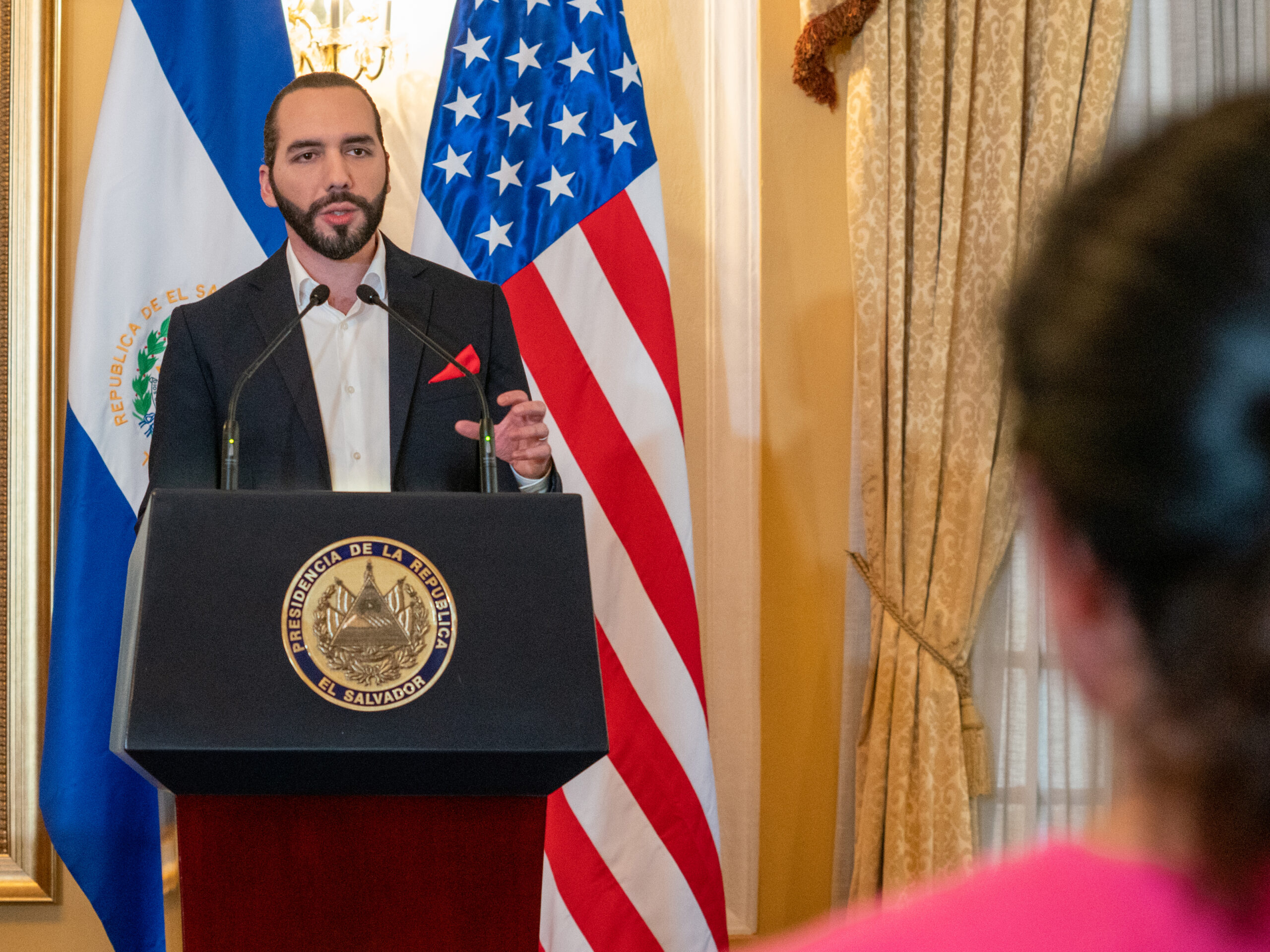
A month ago starting on March 25, El Salvador saw its worst violent period since its civil war ended in 1992. Over three days, 87 people were killed by whom the Salvadoran government claims to be Barrio 18 and MS13 — the two most dominant warfare gangs in the country.
A state of emergency was enacted, and in a matter of hours, President Nayib Bukele revoked the citizen rights of assumed innocence, privacy and assembly, while also approving unwarranted search and seizures. As a result, over 14,000 alleged gang-affiliates have been arrested in three weeks. In the rise of a millennial president with a “mano dura” or firm hand, El Salvador’s “tough on crime” euphemism in regards to gang violence, humanitarian organizations from beyond and within Central America were not going to overlook this situation.
Statements from Amnesty International and Human Rights Watch, among others, accuse him of media censorship and arresting his opposers and argue along the lines of there being no circumstance in which human rights should be suspended.
Among the naysayers is the United States itself. A statement from the Department of State mentions they are “deeply concerned” about the violence caused by Barrio 18 and MS13 and support El Salvador in its fight against gang violence, adding that they’ve sent $411 million in aid since 2008.
The U.S. did not come short of its criticisms, however, at Bukele’s criminal code and attempts to censor journalists, whom they believe must do their jobs “without fear of violence, threats, or unjust detention.” They emphasize protection of due process (the requirement that an individual’s rights are respected by the government), and that now is the time to “extradite gang leaders to face justice in the United States.” Of course, one can’t just accuse an organization or country as virtue-signaling for stating what aligns with their values. But for anyone familiar with Salvadoran history, and the U.S. involvement in it, this statement becomes all the more hypocritical.
Before the nation succumbed to Barrio 18 and MS13, its all-out civil war involved political opponents Christian Democrats and Republican National Alliance. As one can guess, one party’s policies were bordering on socialism, while the other was fiercely anti-socialist, respectively.
What resulted was a period of the U.S. sanctioning when the Salvadoran government was not what it wanted, and turning away when ARENA stole elections from the Christian Democrats in 1972 and 1977 — a party whose members were mostly white and middle-class, in a country that was 90% mestizo at the time and full of agricultural workers who desperately needed a livable wage. The oligarchy continued and peasants saw no increase in their economy and literacy. These are variables that prevent democracy from taking root in the first place.
And with no way to make a viable amount of money, people will have to turn to illegal activity, resulting in gangs.
The U.S.’ response to the current situation under Bukele is just too little too late. While the U.S. proves empathy by mentioning aid and assisting public renovation, the overall message was heavily concerned with protecting journalists and extraditing leaders in the U.S. To say that this a threat for “El Salvador and the United States” while Salvadorans witness their family members be unjustly arrested, rings the familiar self-concern that rules American foreign policy. A more accurate statement would be this a threat put on El Salvador’s plate put partially by external powers like the U.S.







